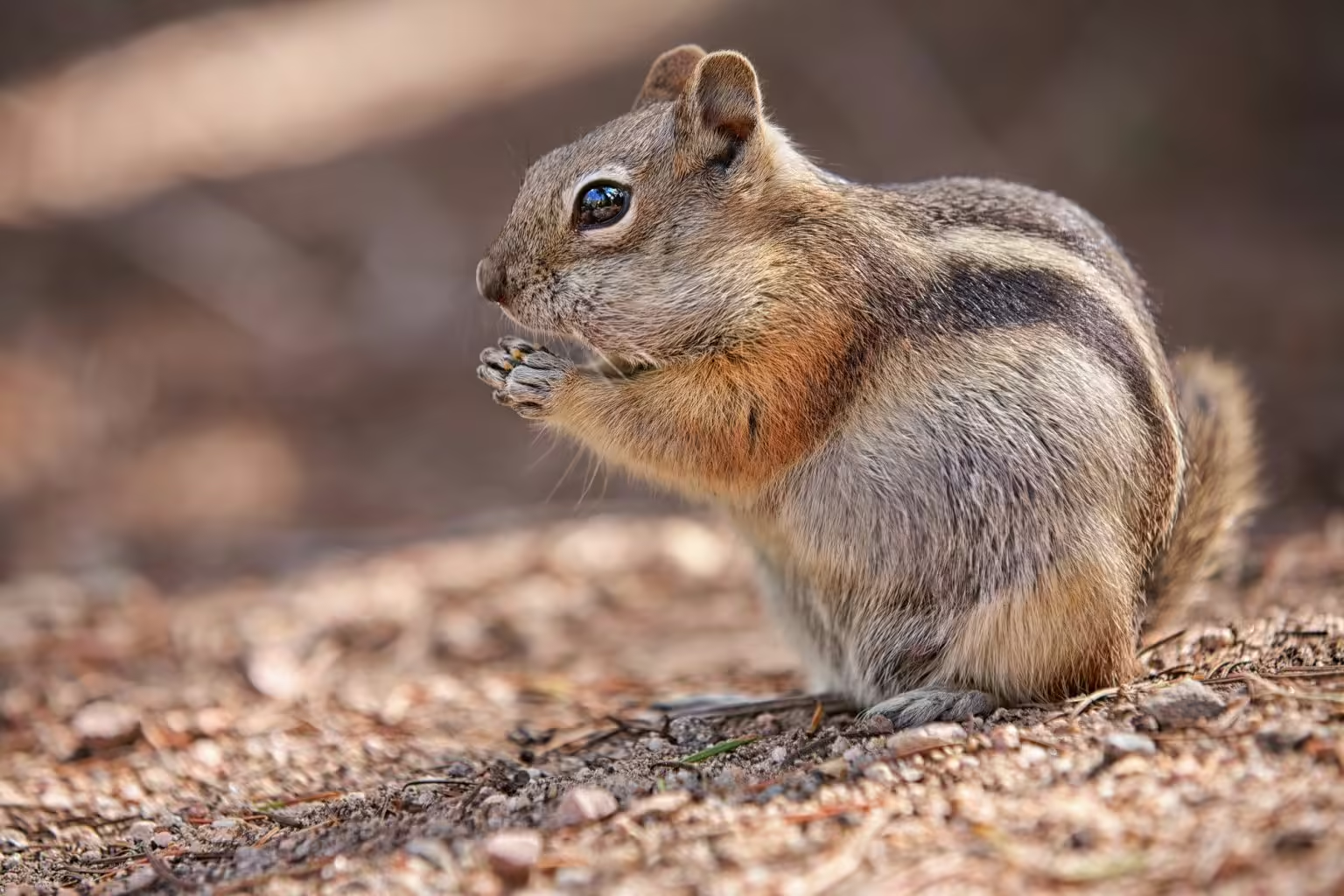
Written by s • Getting Rid Of Chipmunks
Chipmunks are cute little critters – in small doses. They can quickly become a real pest in your home and garden, though. A few chipmunks living in and around your property can cause an incredible amount of damage; holes in your lawn, devastated flower beds and plundered bird nests are common complaints, but in extreme cases the extensive burrows they dig can undermine and damage walls, decks and even your home. They can also be noisy. If all this sounds familiar don’t worry; plenty of frustrated homeowners have managed to solve a chipmunk problem with a few simple tips.
The first thing to consider is whether or not you do need to get rid of your chipmunks. A lot of people see them around and assume they need to go, but often that’s not the case. If they’re not causing any damage or nuisance you’re probably best just leaving them, because they can actually be very beneficial. Chipmunks are omnivores and they eat fungi and assorted insects (they also eat worms, which is not so good – especially for your lawn). Their habit of storing seeds and nuts for winter is a huge benefit for wild plants, because inevitably the chipmunks lose or forget some of the seeds. If there are chipmunks around but they’re not causing you any actual trouble the area is probably better off if you leave them to it.
If they are causing trouble, though, they’re going to have to go. What steps to take will depend on what the chipmunks are doing, but the worst case is if they’ve established a nest in your home or an outbuilding. While they usually live in burrows they’re also happy to exploit lofts, crawl spaces or gaps in your walls. A fist-sized gap is more than enough to let chipmunks in, so they can easily gain access especially in wooden structures. If there are chipmunks around make sure any loose boards are securely nailed in place and gaps are sealed; steel mesh can be used when you want to leave an air gap, but make sure it’s solidly stapled in place – chipmunks have strong teeth.
The worst case scenario is that chipmunks are already nesting in your home, and if it’s during summer or early fall there are probably babies in the nest. You have two choices here: Call in a pest control specialist, or wait until the babies are gone then seal up the entries and stop the animals getting back in.
Keeping chipmunks out of your yard is more difficult – but not impossible. The simplest thing you can do is also one of the most effective – keep your yard immaculate. Chipmunks are scavengers; they’ll happily feed on spilled bird food, old bulbs or anything else they can find. They also like to use dense brush, wood piles or long grass as shelter. If you clear away anything they can find refuge in they’re probably going to stay away. Piles of rocks, a tangle of old roses – tidy it up to get rid of any potential dens. Long grass round boundaries can quickly turn into a chipmunk highway, so get a weed whacker and trim it all back. Lots of animals like to eat chipmunks, from hawks and coyotes to domestic cats, so they try not to spend time out in the open. If you do have a rock garden or old dry stone wall with a lot of gaps, look at ways of filling in the holes. Cement will anchor a wall as well as denying shelter to rodents; seal rock piles with wire mesh then pant small shrubs to disguise the metal.
If chipmunks are still coming around the next step is to look at deterrents. There are quite a few commercial ones, mostly based on concentrated predator urine. These are reasonably effective, but the little pests soon learn to ignore them. Maintain effectiveness by buying two or three different repellents with different active ingredients, and alternating them. That should stop the chipmunks getting used to the scent and deciding they can safely ignore it. Ultrasound machines can also scare them away. The sound these electrically powered gadgets emit is pitched far too high for humans to appear, but to a chipmunk it’s deafening.
As a last resort, look at trapping. The best solution is to get a live trap; these can be bought, but check if your local animal control office can rent you one. When you have the trap wash it down with plain water then bait it. Chipmunks aren’t too fussy about what they eat so almost any bait will do; a handful of peanuts , or a cracker spread with peanut butter, are favorite options. Place the trap somewhere sheltered and out of the sun, so anything that ends up in it won’t suffer too much, and check it daily. If you get a chipmunk take it at least three miles from your home and release it, ideally in a woodland area; it’s likely to stay there instead of trying to find its way home.
Chipmunks can be a real pest and they have a reputation for being hard to get rid of, but it’s not actually all that difficult. They’re basically just squirrels, and the same techniques work against them – but, because they mostly live on the ground, you don’t have to worry so much about aerial antics that let them get in through your roof. Do some basic maintenance to keep them out of your house, and repellents or traps should sort out any that do insist on paying you a visit.





